Filter by
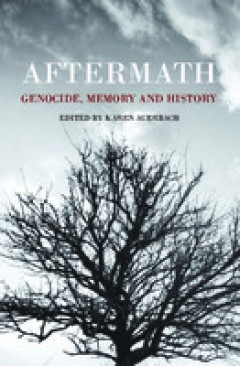
Aftermath
Aftermath: Genocide, Memory and History examines how genocide is remembered and represented in both popular and scholarly memory, integrating scholarship on the Holocaust with the study of other genocides through a comparative framework. Scholars from a range of disciplines re-evaluate narratives of past conflict to explore how memory of genocide is mobilised in the aftermath, tracing the devel…
- Edition
- -
- ISBN/ISSN
- -
- Collation
- -
- Series Title
- History
- Call Number
- -
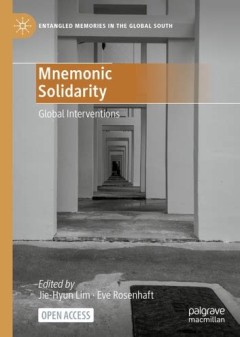
Mnemonic Solidarity : Global Interventions
This open access book provides a concise introduction to a critical development in memory studies. A global memory formation has emerged since the 1990s, in which memories of traumatic histories in different parts of the world, often articulated in the terms established by Holocaust memory, have become entangled, reconciled, contested, conflicted and negotiated across borders. As historical act…
- Edition
- 1
- ISBN/ISSN
- 9783030576691
- Collation
- XI, 135 hlm; ill., lamp.,
- Series Title
- -
- Call Number
- -

Everyday silence and the Holocaust
- Edition
- -
- ISBN/ISSN
- 9781003462699
- Collation
- -
- Series Title
- -
- Call Number
- -
- Edition
- -
- ISBN/ISSN
- 9781003462699
- Collation
- -
- Series Title
- -
- Call Number
- -
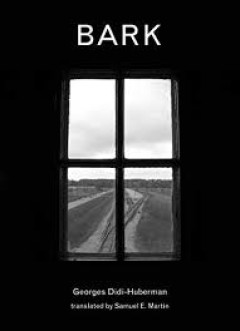
Bark
A noted French thinker's poignant reflections, in words and photographs, on his visit to Auschwitz-Birkenau. On a visit to Auschwitz-Birkenau, Georges Didi-Huberman tears three pieces of bark from birch trees on the edge of the site. Looking at these pieces after his return home, he sees them as letters, a flood, a path, time, memory, flesh. The bark serves as a springboard to Didi-Huberman's m…
- Edition
- -
- ISBN/ISSN
- 9780262342629
- Collation
- 1 online resource (136 pages)
- Series Title
- -
- Call Number
- -
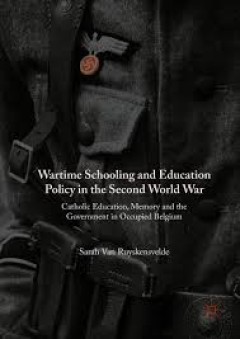
Wartime Schooling and Education Policy in the Second World War Catholic Educ…
This book deals with the development of private secondary schooling during the Second World War in Belgium. It focuses on how the German occupier used education to gain acceptance of the regime, and discusses the attitudes of Belgian education authorities, schools, teachers and pupils towards the German occupation. Suggesting that the occupation forced Belgian education authorities, such as the…
- Edition
- -
- ISBN/ISSN
- 978-1-137-52011-1
- Collation
- -
- Series Title
- -
- Call Number
- -

Neider überall zwingen uns zu gerechter Verteidigung Legitimisation and De-…
This first monograph on WWI dramatic literature closes one of the last research desiderata of the German literature on the First World War. The author opens up a hitherto unknown corpus of texts and identifies the most important discourses represented in these WWI plays. Furthermore, he embeds the discourses in contemporary public debates and identifies them in more famous dramatic works of the…
- Edition
- -
- ISBN/ISSN
- 9783503205134
- Collation
- -
- Series Title
- -
- Call Number
- -

The Atrocity of Hunger: Starvation in the Warsaw, Lodz, and Krakow Ghettos du…
Selama Perang Dunia II, Jerman menempatkan orang Yahudi di Polandia yang diduduki Nazi ke dalam ghetto yang membatasi pergerakan mereka dan, yang paling penting untuk kelangsungan hidup mereka, akses ke makanan. Orang Jerman melihat orang Yahudi sebagai "pemakan yang tidak berguna", dan menolak makanan yang cukup untuk bertahan hidup. Kelaparan yang diakibatkan oleh kelaparan yang disengaja ini…
- Edition
- -
- ISBN/ISSN
- 9781009105293
- Collation
- -
- Series Title
- -
- Call Number
- T 940.5318 SIN a c.1

Wartime Schooling and Education Policy in the Second World War Catholic Educ…
This book deals with the development of private secondary schooling during the Second World War in Belgium. It focuses on how the German occupier used education to gain acceptance of the regime, and discusses the attitudes of Belgian education authorities, schools, teachers and pupils towards the German occupation. Suggesting that the occupation forced Belgian education authorities, such as the…
- Edition
- -
- ISBN/ISSN
- 978-1-137-52011-1
- Collation
- XII, 220
- Series Title
- -
- Call Number
- -
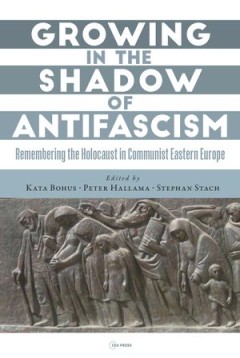
Growing in the shadow of antifascism : remembering the Holocaust in State-…
Reined into the service of the Cold War confrontation, antifascist ideology overshadowed the narrative about the Holocaust in the communist states of Eastern Europe. This led to the Western notion that in the Soviet Bloc there was a systematic suppression of the memory of the mass murder of European Jews. Going beyond disputing the mistaken opposition between “communist falsification” of hi…
- Edition
- -
- ISBN/ISSN
- 9789633864364
- Collation
- -
- Series Title
- -
- Call Number
- 940.53 GRO

Growing in the Shadow of Antifascism: Remembering the Holocaust in State-Soci…
Reined into the service of the Cold War confrontation, antifascist ideology overshadowed the narrative about the Holocaust in the communist states of Eastern Europe. This led to the Western notion that in the Soviet Bloc there was a systematic suppression of the memory of the mass murder of European Jews. Going beyond disputing the mistaken opposition between “communist falsification” of hi…
- Edition
- -
- ISBN/ISSN
- 9789633864364
- Collation
- -
- Series Title
- -
- Call Number
- 900 GRO g
 Computer Science, Information & General Works
Computer Science, Information & General Works  Philosophy & Psychology
Philosophy & Psychology  Religion
Religion  Social Sciences
Social Sciences  Language
Language  Pure Science
Pure Science  Applied Sciences
Applied Sciences  Art & Recreation
Art & Recreation  Literature
Literature  History & Geography
History & Geography